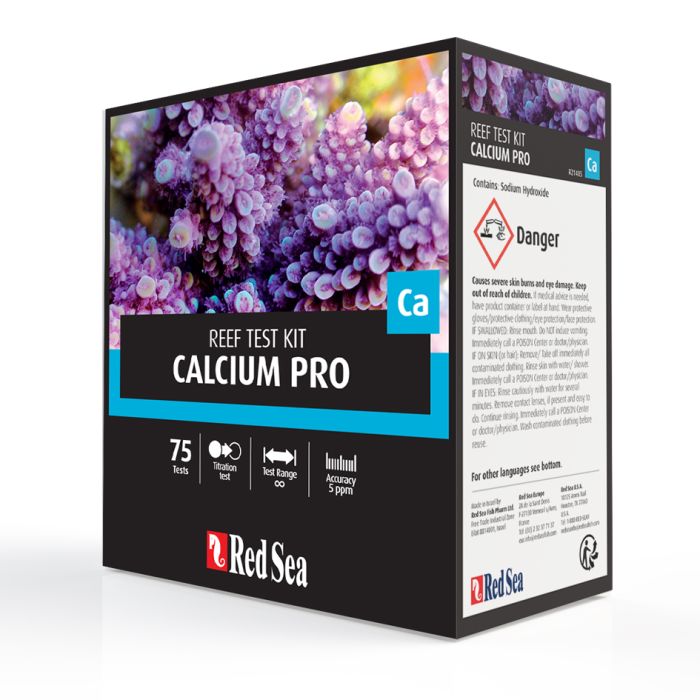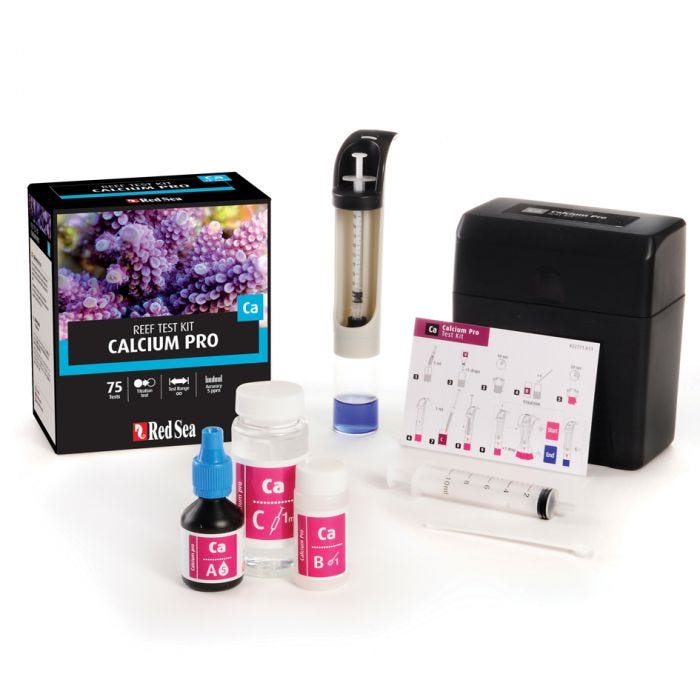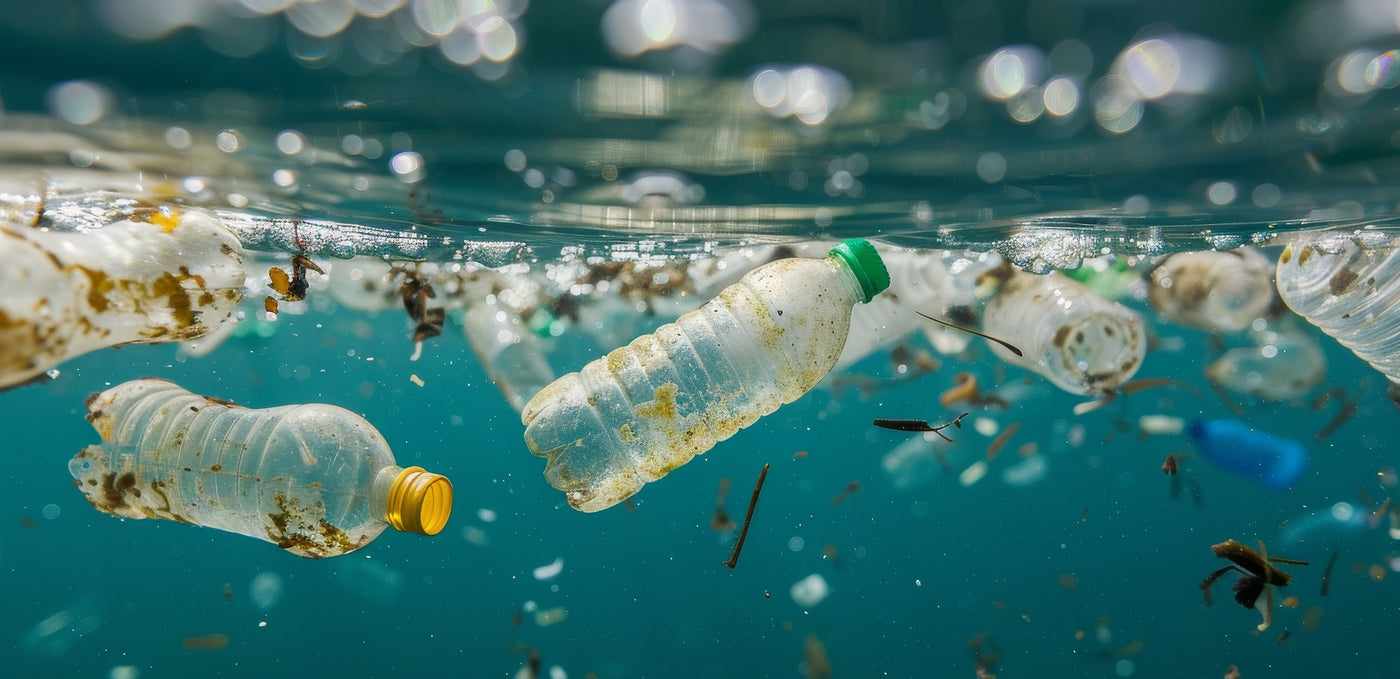Red Sea Calcium Pro Test Kit
Red Sea Calcium Pro Test Kit is backordered and will ship once an order is placed. Contact us for delivery timeframes.
Delivery and Shipping
Delivery and Shipping
Shipping Cost Guide:
Courier: $10-$50 Depending On Distance/Item
Saturday Delivery: $8.50
Rural Delivery Fee: $8.50
Shipping Available NZ Wide.
Returns Policy
Returns Policy
We accept hassle free returns within 5 days of purchase date, with the purchase reciept and in the same condition it was brought in. Livestock, Clearance Items, Aquariums or Special Order items are not returnable. All returns are at EMA's Descretion.
EMA's Promise.
Qualified, Honest Advice Using Techniques & Protocols that we use ourselves.
Description
Description
Keep on top of coral reef aquarium care with hassle-free calcium titration testing. Red Sea Calcium Pro Test Kit simplifies the titration (color change) testing method with an easy-to-use, single hand titrator. Conventional titration testing involves a cumbersome process of adding and mixing a titrant with sample water containing reagents. Now you can enjoy high precision calcium titration testing using just one hand!
Red Sea Calcium Pro Test Kit boasts a new level of convenience for reef aquarium hobbyists. Routine and precise measurement of aquarium calcium levels is essential for successful coral reef aquariums. This advanced calcium titration test kit encourages proper calcium testing skills with ease of use and a high degree of accuracy (±2.5ppm).
Included quick guide card walks you through the testing process with simple, easy-to-understand illustrations. Reverse features a chart that displays calcium test results in parts per million (ppm). Measure and monitor calcium levels with Red Sea Calcium Pro Test Kit to ensure ideal water parameters for coral reef aquariums housing SPS, LPS and Soft Corals. 75 Tests.
Contents:
- Titrator
- Instruction Manual
- Color Card
- Dosing Spoon
- Reagent A - 25ml
- Powder B - 12g
- Titrant - 75ml
Directions for Calcium Pro Test Kit
- Using the large syringe provided, place exactly 5 ml of the water to be tested into the glass vial.
- Add 5 drops of Calcium Pro Reagent A and mix gently with the water sample.
- Add a leveled measuring spoon of Calcium Pro Reagent B, close the vial with the cap and shake for 20 seconds. The test sample will now have the titration start color as shown on the instruction card.
- Screw the glass vial onto the bottom of the Titrator.
- Ensure that the dispensing tip is on the 1 ml titration syringe and fill with 1ml of Calcium Pro Titrant (C).
- Insert the syringe into the center of the Titrator so that the volumetric scale on the side of the syringe is visible. The graduations of the volumetric scale are 0.01 ml, equivalent to 5 ppm of calcium.
- Add the first 0.6 ml of titrant (equivalent to 300ppm of calcium) by pressing the plunger of the syringe while gently swirling the Titrator. Continue adding the titrant gradually, swirling the Titrator after each addition and paying attention to the color in the vial. As the color in the vial approaches the end color as shown on the instruction card, add one drop at a time, swirling after each drop, until the end color is achieved.
- Note: If you have added 1 ml of Calcium Titrant C, without reaching the end color, the calcium concentration of your water sample is more than 500 ppm. Refill the syringe and continue to add titrant until you reach the end color.
- Note the amount of titrant used (according to the initial and final position of the plunger not the liquid surface) and use the table to calculate the level of calcium in the water sample.
- Return any unused quantity of titrant to the Calcium Pro Titrant C bottle.
General Information
The Foundation Elements (Ca, KH & Mg)
A successful coral reef aquarium is dependent upon maintaining the appropriate water parameters that in turn provide the stable environment required by the corals. Although all the elements found in natural seawater have an important role in providing the optimal water parameters, a few of them have a more significant role in the overall stability. These elements are the foundation of the reef environment and they include the three major elements, Calcium (Ca), Magnesium (Mg) and Bi-Carbonates (HCO3). These three elements have a major effect on the water chemistry (pH stability, Alkalinity and seawater ionic strength) and on many of the coral's biological processes (skeleton formation, ion exchange and photosynthesis).Red Sea Reef Care Program
General Instructions for Testing and Supplementing
- Before carrying out any water testing, always check the salinity and make adjustments as necessary. If you have made adjustments to the water, wait 10 minutes for the water parameters to stabilize. (E.g. 1 ppt increase in salinity due to evaporation of freshwater will result in approximate increases of 13ppm Ca and 40ppm Mg).
- Test only with high resolution test kits such as Red Sea's Foundation Program (Calcium, Alkalinity & Magnesium) Pro Titration Kits.
- All of the Red Sea Reef Care Program supplements have dosing charts (on back of product) based on treating 100 liters / 25 gallons of water. Estimate your total volume of water (aquarium & sump less volume of live rocks etc) to calculate the correct dosage for your system.
- Supplements should be added to the sump. If you do not have a sump, add the supplements slowly to an area with high water flow to prevent direct contact with fish and corals.
- To prevent stress to the corals, the maximum daily increases of each of the elements are as follows: Calcium 20ppm; Alkalinity 0.5 meq/l (1.4 dkh); Magnesium 10ppm. Larger adjustments should be spread over a few days according to the daily maximum.
- In order to prevent the effects of unbalanced levels of the foundation elements, supplements should be added in the following order allowing 10 minutes between each:
- 1st - Magnesium
- 2nd - Alkalinity
- 3rd - Calcium
Important Notes for Using the Reef Foundation Titration Test Kits
- Before testing, clean the glass vial and the large syringe by rinsing with the water to be tested.
- After testing, rinse all syringes and vials with RO or distilled water before storing. If vials are left unwashed, a residue can form that will affect the results of future tests. Use a slightly acidic solution such as vinegar to remove the residue.
- Close all reagents tightly immediately after use.
- The test reagents are stable up to the date stated on the pack when stored closed between 15 - 25°C (59 - 77°F).
- Store the reagents in the plastic box to prevent damage from prolonged exposure to light.
Note for Filling the 1ml Titration Syringe
Raise the plunger of the syringe until the bottom ring of the plunger is at the 1.0 ml mark. The surface of the liquid will be approximately 0.1 - 0.15 ml below the plunger.Do not try to remove the air trapped between the liquid and the plunger. This small volume of air corresponds to the liquid held inside the plastic tip.
Payment & Security
We offer a number of different payment methods, including Credit Card, Afterpay, Q Card, Pay at Collection, Bank Transfer and POLi.
Credit card payments are processed securely using the highest possible security protocols.









